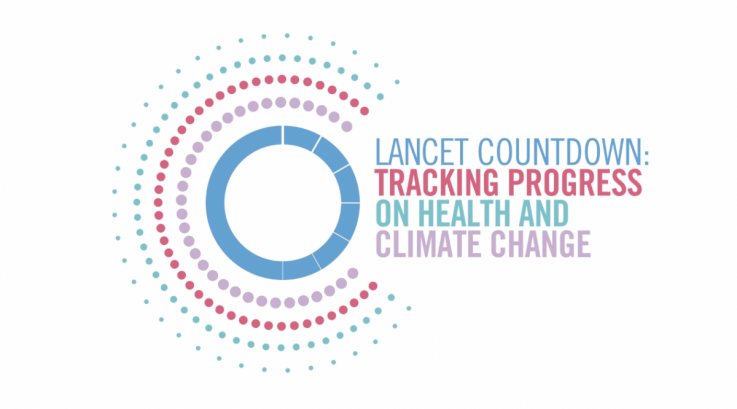The Lancet Countdown's 2018 report on health and climate change was released November 28. The Lancet Countdown: tracking progress on health and climate change was established to provide an independent, global monitoring system dedicated to tracking the health dimensions of the impacts of, and the response to, climate change. The report focused on five domains: climate change impacts, exposures, and vulnerability; adaptation, planning, and resilience for health; mitigation actions and health co-benefits; finance and economics; and public and political engagement.
Kristie Ebi and Jeremy Hess, University of Washington professors of global health and environmental and occupational health sciences, and directors of the Center for Health and the Global Environment (CHanGE), are co-authors of the global report. Hess was a lead author on the report's brief for the US, and Ebi has been quoted in the New York Times, CNN, Reuters, and The Guardian on the health impacts of heat stress and spread of infectious diseases.
The report highlights three key messages:
IMPACT: Present day changes in heat waves labour capacity, vector-borne disease, and food security provide early warning of compounded and overwhelming impacts expected if temperature continues to rise.
DELAY: A lack of progress in reducing emissions and building adaptive capacity threatens both human lives and the viability of the national health systems they depend on, with the potential to disrupt core public health infrastructure and overwhelm health services.
OPPORTUNITY: Despite these delays, trends in a number of sectors see the beginning of a low-carbon transition, and it is clear that the nature and scale of the response to climate change will be the determining factor in shaping the health of nations for centuries to come.
The Lancet report on global climate change follows a recent national climate report that focuses on impact, risks, and adaptation in the United States.
Read our coverage of the US climate report
Read UW School of Public Health's interview with Jeremy Hess
